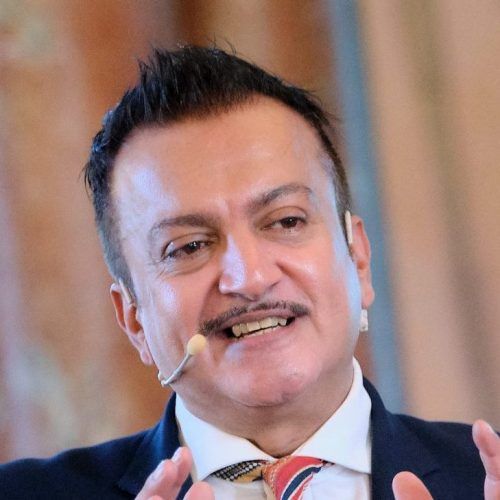Addressing the trust deficit requires a seismic shift in politics
Frankly Speaking
Chief Operating Officer and Chief Spokesperson of Friends of Europe
To mask or not? This is indeed one of the constants in this rather despicable affair of governments trying their hardest to contain, control and prevent the coronavirus. Add to that social distancing, washing of hands, closing times of bars/restaurants, curfews, and/or abrupt quarantine measures in response to rising infection rates, and we get a perfect storm of citizen dissatisfaction and revolt. Can you really blame anyone?
Lo and behold the warning of a second wave by scientists has taken Europe by storm. In the starkest terms of any politician thus far, Frank Vandenbroucke, Belgium’s Federal Health Minister admitted, “We are really close to a tsunami … we no longer control what is happening”.
Some might consider this a sign of failure, however, it’s this kind of clarity and honesty that’s required of the moment. Other politicians might take a leaf out of his book because it demonstrates that there is vulnerability and that politicians and the wider ‘system’ haven’t got all the answers.
Politicians have attempted to spin their way out of this crisis, by invoking the science, yet following the politics by keeping a narrow focus on their political tenure and the economy. There is a failure to grasp that the crisis and the economy go hand in hand. The IMF head said, “Doing too little too late is costly to debtors, costly also to creditors.” It warned that most economies will suffer lasting damage, and that extreme poverty is likely to rise for the first time in more than 20 years.
Isn’t it time to radically overhaul our model of doing things?
Crucially, the crisis has revealed that the current form of government and governance is not up to the task. It has exposed the weak capability of national and local public administration systems to work in sync. Simply put, there aren’t the levers from a national pronunciation to local delivery. Preparedness is not a public sector competence; collecting data is at a primary level where it does exist; and cross-department and inter-agency coordination at a local level is not a regular practice.
Some argue that years of shrinking the state has resulted in inefficiency, corruption, dwindling quality, increasing costs and subsequent household debt. This has further marginalised poorer communities and undermined the social value of basic needs. We are now witnessing this in stark terms.
Isn’t it time to radically overhaul our model of doing things – especially when whole swathes of the private sector are underpinned by public sector money and the EU is about to embark on the largest use of public taxpayer money on recovery? Citizens are increasingly demanding this change.
We need a seismic shift in the mindset of governments and municipalities
What should policymakers do?
There’s no better time than now to share power in developing solutions to the crisis. Take citizens and stakeholders with you in this unprecedented challenge – it’s not a sign of weakness nor does it absolve the responsibility of government. Rather, it’s a reflection of ‘we are in this together’ and enables common ownership of the measures being put in place.
People simply don’t understand why 10pm and not 11pm for closing of bars, why restaurants remain open but not bars, or how trams and metros can continue to be full. They also see significant political leaders flouting the rules.
If we are to break the trust deficit on this one, we need a seismic shift in the mindset of governments and municipalities to involve representatives from the local and national economies.
The European Commission and national governments should establish platforms that include citizen representatives – paying special attention to minority groups, mayors, the arts and cultural sector, small- to medium-sized enterprises, large infrastructure business, trades unions, journalists and parent groups to share the problem we are experiencing and identify creative solutions.
These platforms could help craft what might seem like ludicrous ideas and solutions; but we live in ludicrous times. For instance: what about making use of empty spaces to assist those who have just lost jobs, or those desperate to help and diversify their skills? The EU could call on the Erasmus plus network to pay back and develop ideas, and fish in that pool to seek support.
Let’s enable a modern, inclusive approach to how governments and municipalities work to solve crises
Cultural icons should be engaged to communicate key message across Europe, with a special focus on channels that speak to younger generations – find out of the box players that can help nudge behaviour.
There are striking similarities in securing a Europe-wide recovery package: the balance of debt vs loans; the distaste amongst the frugal north and the perceived poorly managed south; their differing levels of needs and distinct circumstances, some of which are long-standing.
These are both one and the same crisis. They point to the underpinning competence of and commitment to the European project. National governments will have to vote on new ‘own resources’ before they are established as part of the EU’s recovery package.
People will not distinguish between their experience of how governments have handled COVID-19 and the call for more of their tax money to support recovery. It’s time to learn the lesson before it’s too late. Let’s enable a modern, inclusive approach to how governments and municipalities work to solve crises – and use the notion of ‘with’ rather than ‘to’ the citizen.
You may also like…
- Friends of Europe: Bailouts, bonds and trust, with Pascal Lamy and Mario Monti
- Europe’s World: Is the West ready for the second wave of the coronavirus, by Chris Kremidas Courtney
- Debating Europe: Can European countries avoid a second lockdown?
Stay informed
